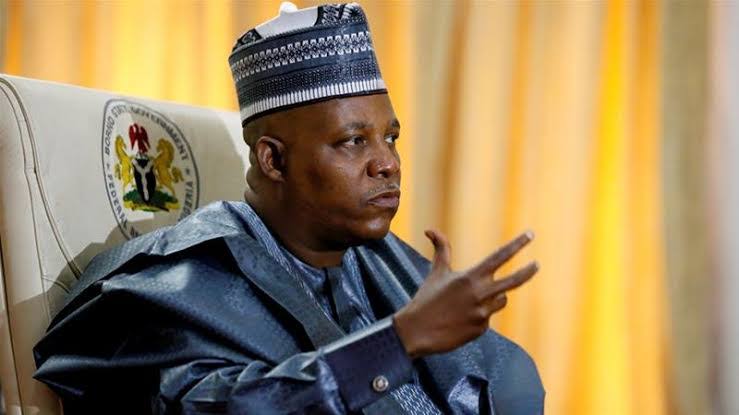Reinvigorating intra-African trade amid global tensions - Part 2
Given the prism of rampaging global tensions, isolationist economic policies, the rise of populist political parties in the Global North and anti-immigration policies, at times tinged with racist rhetoric, there is a compelling case for an enduringly effective and sustainable intra-trade across the Africa.
Afterall, over a million people have attempted to emigrate from Sub-Saharan Africa to Europe in the last 15 years and, within the last decade, more than 29,000 of those immigrants have died on the Mediterranean, whilst countless others have died at points along the way according to Prospect Journal. The latter confirms that in 2023 alone, 3,105 immigrants died or vanished, often in fishing vessels unequipped to hold many passengers and incapable of making the entire journey to Europe.
People trafficking organisations operate throughout the African continent, demanding payments for safe passage and gratuitously injuring immigrants in the process. Upon arrival, most are arrested, and deported and many of those who remain, scarcely integrate with the European community and remain in a legal limbo for several years.
Surely, greater intra-African trade heralds the prospects of economic growth and opportunities and with that, comes the reasonable prospect of undercutting extremely hazardous journeys to Europe and a better quality of life in Africa – where the attempted emigration is not driven by genuine asylum claims triggered by genuine persecution and war and fears thereof.
Of course, capacity gaps, ideological conflicts, income disparities, political divergence, poverty, proxy economic wars on the African continent between pro-West and pro-China countries, ethno-religious terrorism and real wars in Burkina Faso, DRC, Mali, Sudan, Nigeria are impediments to pan-African trade because they risk reversing the aforementioned accomplishments of the quartet of ECOWAS, AfCTA, AfDB, Afreximbank; and the AU.
Nevertheless, those very geopolitical dynamics re-establish the imperative for greater trade collaboration across the continent and beyond. The African Growth and Opportunity Act (2000) which is approaching its sunset in September 2025, presents an opportunity for enhanced renegotiation with African countries.
Fundamentally, the African Growth and Opportunity Act (AGOA) is a U.S. trade law enacted in 2000 to promote economic growth and development in sub-Saharan Africa. Its central objective is to foster economic relations between the U.S. and eligible African countries by providing duty-free access to the U.S. market for thousands of products. AGOA affords eligible countries duty-free access to the U.S. market for over 1,800 products, in addition to more than 5,000 products under the Generalised System of Preferences programme.
However, eligibility is subject to the caveat that the relevant countries establish or make progress toward a market-based economy, rule of law, political pluralism, and protection of human rights.
The U.S. President reviews and determines country eligibility annually. The African Growth and Opportunity Act is currently valid until September 30, 2025. Although there have been efforts to further extend it, such as the AGOA Extension Act of 2023, which proposes to extend the act through September 2045, the current expiration date remains in 2025. Regarding its impact, AGOA has contributed to increased trade between the US and sub-Saharan Africa, promoting economic growth and development in the region.
However, its impact has been debated, with some arguing that it primarily benefits the U.S. and large corporations, while others see it as a vital opportunity for African countries to access the U.S. market. And whilst AGOA’s expiration date of September 30, 2025 draws ever closer, the United States may well demand a quid pro quo from eligible African countries for its extension – which although not unusual in strategic multilateral trade negotiations of this scale and complexity – may entail the U.S. demanding that AGOA eligible countries procure a greater quantum of goods and services from that country and less from China!
Why? Because of the geostrategic, geoeconomic rivalry, and striking ideological differences between both economic and nuclear superpowers, with discrete veto-wielding powers as permanent members of the most powerful United Nations organ, the Security Council, established pursuant to Article 7.1 of the UN’s 1945 Charter and – which has the power to authorise the use of force via the provisions of Article 42 against an aggressor nation to restore international peace and security.
Nevertheless, the strategic complexity in these dynamics is that in economic terms at least, United States led global unipolarism has more or less waned given the formidable powers exercised by China, the former’s closest economic rival. Increasing trade collaboration between and amongst the Global South, and the BRICS’ (Brazil, Russia, India, China and South Africa) economies further complicates an already complex geostrategic minefield.
To put this in perspective, the United States Trade Representative, an agency of the Presidency, established that U.S. total goods trade with Sub-Saharan Africa, under AGOA, were an estimated $71.6 billion in 2024. U.S. goods exports to Africa in 2024 were $32.1 billion, up 11.9 percent ($3.4 billion) from 2023. U.S. goods imports from Africa in 2024 totalled $39.5 billion, up 1.9% ($0.8 billion) from 2023. The U.S. goods trade deficit with Africa was $7.4 billion in 2024, a 26.4 percent decrease ($2.6 billion) over 2023.
The strategic and compelling counterpoint however, is the exponential trade volumes between China and Sub-Saharan Africa in the period over the past two decades. Analysis from the Boston University Global Policy Development Centre emphasises that China, with trade volumes with many African countries worth $257.67 billion, in 2022 alone, is the latter continent’s pre-eminent trading partner outperforming the United States, United Kingdom and Europe. Also in 2022, Africa’s trade deficit with China was 2.6 per cent of GDP, with Chinese exports valued higher than African exports.
Leveraging opportunities afforded by AfCTA, trade volumes in 2023 between China and Africa was approximately $263 billion with Angola being largest exporter, followed by the Democratic Republic of Congo and South Africa. Between 2000 and 2022 African countries majorly exported commodities like oil, copper, iron ore, and alumina, accounting for 89 per cent of total exports in those decades.
Whereas China primarily exported manufactured goods, electronics, and machinery, representing 94 per cent of total imports during the same period. Also in 2000-2022, Chinese companies invested $112.34 billion in greenfield projects – entailing foreign direct, new infrastructure, research and development facilities investments, technology transfer aimed at economic growth on a mutually beneficial basis – and $24.60 billion in mergers and acquisitions in Africa.
Yet again within that timeframe, Chinese lenders supplied $170.08 billion in loans to African sovereign borrowers, with $134.01 billion emanating from China’s primary development finance institutions like the China Development Bank, Shanghai Pudong Development Bank, C-EXIM (China – Export Import Bank) etc. China’s investments in Africa are shifting towards green development and the digital economy, with a focus on sustainable growth which implies the necessity for policy certainty, political stability not least to ensure the stability of integrated end to end supply chains and economic benefits.
Additional context for the foregoing thesis is exemplified, in part, by China’s announcement of its intention to establish a multi-billion-dollar electric vehicle factory in Nigeria in May 2025. The scheme will enable Chinese companies to set up manufacturing facilities for electric vehicles (EVs) and related components, such as batteries, in Nigeria, leveraging the country’s rich mineral resources like lithium, stimulating local enterprise, boosting employment whilst facilitating technical skills transfer.
It is envisaged that the project construction and operation of EV factories will create thousands of direct and indirect jobs, prompting investments in training and capacity building. It will also transform Nigeria’s rare earths and solid minerals industry given the strategic objectives of increasing exploration and processing activities, thereby creating new revenue streams for the government and private sector.
It is reasonably anticipated that the establishment of EV factories will catalyse infrastructure development, including roads, power supply, and industrial parks, cut reduce reliance on fossil fuels, aligning with global climate goals and Nigeria’s commitments under the Paris Agreement, a legally binding international treaty on climate change effective on November 4, 2016 aiming to “increase in the global average temperature to well below 2°C above pre-industrial levels” and pursue efforts “to limit the temperature increase to 1.5°C above pre-industrial levels.”
In short, think geopolitics! Think sovereign autonomy! Think overriding national interests! Think competition – for a market with vast natural resources and a population exceeding 220 million people!
To conclude, the immutable inferences from the foregoing discourse relative to transformatively energising pan-African trade engage compelling vision, real leadership, political nous, African unity, effective diplomacy which can reduce conflicts, eliminating trade barriers, robustly tackling terrorism utilising kinetic and non-kinetic methods, strategic coordination, and political stability.
Realpolitik suggests that squaring those competing variables, counterbalanced with national interest considerations, will prove extremely tricky. Then again, that calls for clear-eyed strategic thinking, collaboration, realism, and an Africa-first philosophy. Impossible? No. Challenging? Yes. Doable? Absolutely!
Concluded.
Ojumu is the Principal Partner at Balliol Myers LP, a firm of legal practitioners and strategy consultants in Lagos, Nigeria, author of The Dynamic Intersections of Economics, Foreign Relations, Jurisprudence and National Development (2023).










